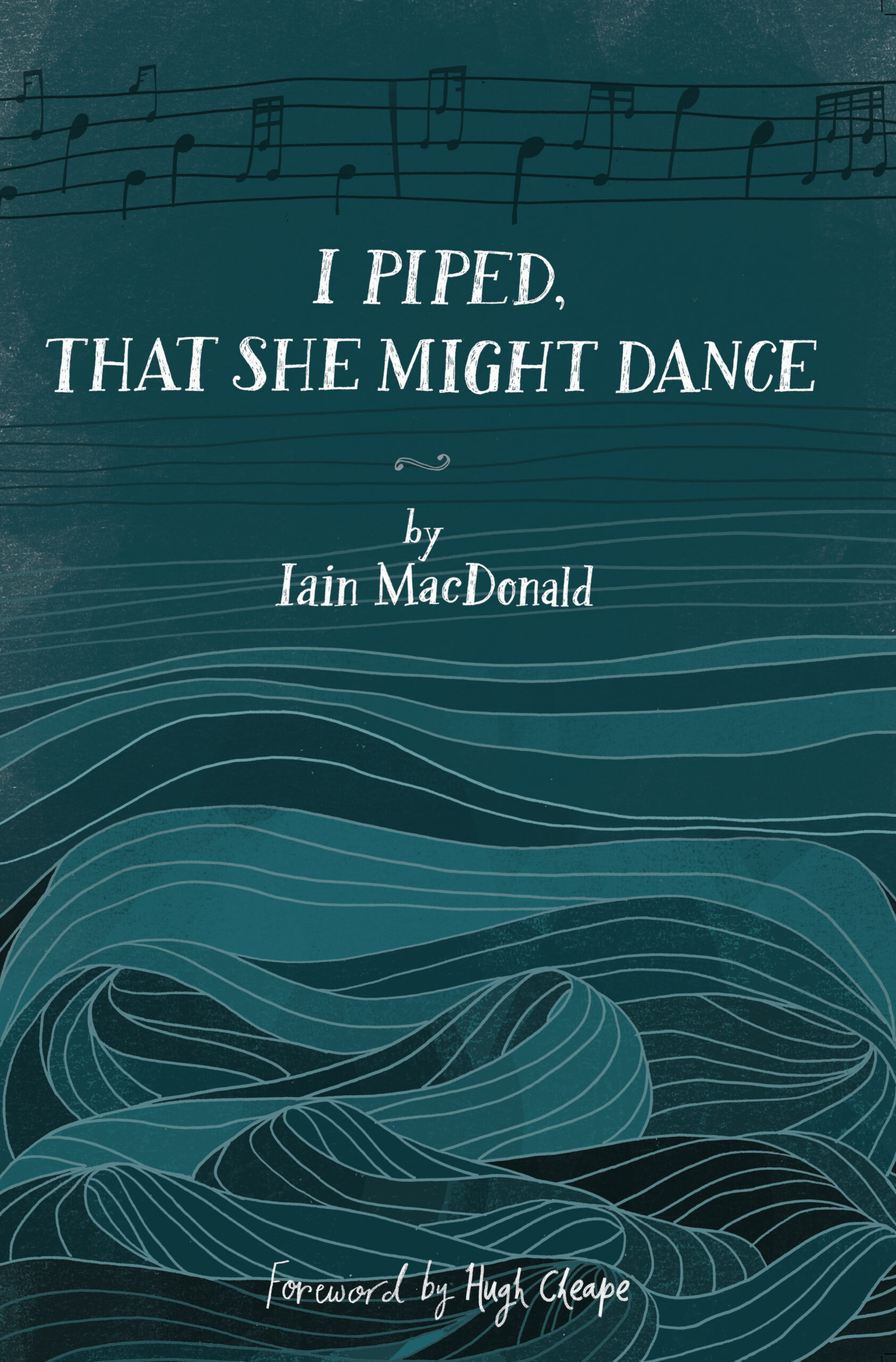Your basket is currently empty!
I Piped, That She Might Dance
By Iain MacDonald 🖇
Publication date: 1 October 2021
Praise
Revealing, sensitively written and eminently readable. It is an imagined autobiography of Angus MacKay, piper to Queen Victoria, but it is well- informed and thoroughly researched and convincing. Besides piping, it provides insights into the social life of the time, from croft to palace, as well as into the treatment of mental illness. Iain MacDonald is to be warmly congratulated.
– John Purser, author of Scotland’s Music, researcher at Sabhal Mòr Ostaig
A sympathetic view of a driven and complex man … Above all, a tale told with verve, flair, a fine eye for detail, and a sensitive depiction of the ultimate tragedy of the central character.
– James Beaton, former librarian at the National Piping Centre
I loved this book … It empathetically captures the triumphs and tribulations of MacKay’s life – from Raasay croft, via Balmoral and Buckingham Palace, and ultimately to the asylum. It is true to the facts, deeply researched and easy to read. Victorian life is described with pathos, humour and colour. A deservedly positive light is shone on MacKay’s lasting contribution to the music of the Highland Bagpipe, especially the classical Pìobaireachd. Iain MacDonald is to be congratulated. MacKay might have written this himself.
– Jack Taylor, former president of the Pìobaireachd Society
The fascinating story of a controversial, flawed, but musically talented Scottish Gael who put the notes of the Highland bagpipe on the page.
– Ellen Beard, editor of 100 Òran le Rob Donn MacAoidh
MacDonald has fleshed out the narrative of arguably the most interesting man in piping history, and certainly the most influential piper to date.
– Nick Hudson, pipes|drums
Here we have a work of fiction, but based on true facts. The author himself says that the reader may struggle to work out ‘where fact ends and fiction begins’, but when you come to think about it, grace-notes and embellishments are so much a part of the piper’s world that it seems almost appropriate that MacKay’s story should be presented in this way. It’s an enjoyable and evocative read, and the author’s affection for both his subject and the Highlands is indisputable. Unlike a book of straight fiction, this one comes with an admirable bibliography of primary and secondary sources, and a useful Gaelic glossary for the odd phrases peppered through the text.
– Karen McAulay, Royal Conservatoire of Scotland
This book sheds new light on a well known, poorly understood, piper of national and international significance. Iain Macdonald presents a sympathetic, almost intuitive, account of Mackay, Piper to the Sovereign, recreating a voice silenced by mental illness. The reader moves from Mackay’s early days in Raasay, through the deterioration of his reason, to his final hours in Dumfriesshire. Macdonald adeptly combines primary source materials, including patient records, with sections of dialogue and description to create an engaging, illuminating account of interest to anyone fascinated by piping culture or, more generally, nineteenth century Scottish cultural interactions. It well researched, beautifully imagined, and empathetic.
– Valentina Bold, editor of Robert Burns’ Merry Muses of Caledonia and formerly ofthe University of Stirling
This is a remarkable portrayal of a man whose talent left an indelible mark on Highland history and the piping world.
– Scottish Field







Reviews
There are no reviews yet.